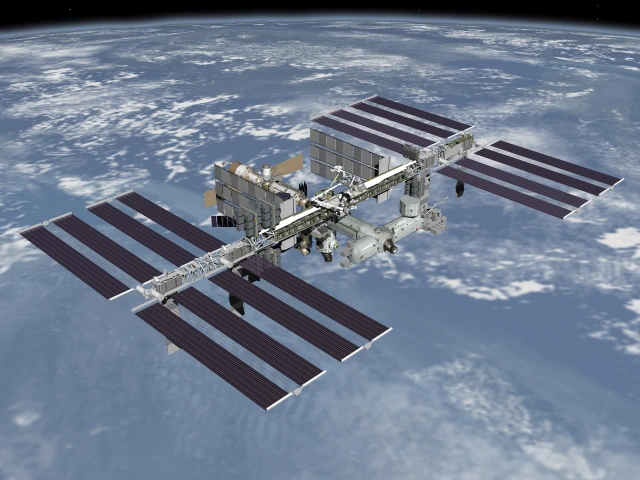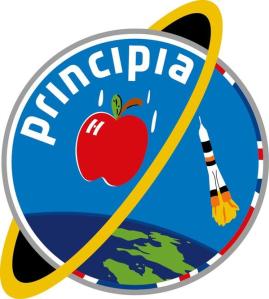Friday, January 8, 2016 at approximately 08:47 GMT, an ARISS contact is planned for Sandringham School, St. Albans, Hertfordshire, United Kingdom. Amateur radio station GB1SAN, will operate the contact. The ARISS HAM radio station GB1SS on the board of the International Space Station will be operated by Timothy Peake KG5BVI.

Sandringham School Students – Image Credit Sandringham School @SandringhamSch1
School information:
Sandringham School is a high performing coeducational non-selective and non-denominational secondary school, consistently graded Outstanding by Ofsted and being in the top 100 highest performing non-selective schools in England for the past 3 years.
The school is a specialist science college, arts college and leading edge provider. It is also designated as one of the first ‘World Class Schools’ in the country. The school operates a significant amount of community and outreach activities, is an Initial Teacher Training provider and runs a Teaching School Alliance for Hertfordshire. Sandringham is also a “Gifted and Talented” lead school and International School, with significant international activities taking place throughout the year. The school also coordinates National Initiatives with the Education Endowment Foundation and has a significant reputation in the country for delivering outstanding comprehensive education.
The total number of students on roll is 1300 and expanding, with children from age 11 – 19, including a very large and academic sixth form. The catchment area is local, serving the needs of St. Albans and Wheathampstead although sixth form students join the school from further away if they meet the entrance criteria.
We have over 100 teachers in the school including specialist teachers of computing science and three female physics teachers all of whom have a specialist interest in space and astronomy. In addition, the headeacher is a very active radio amateur who is extremely supportive of this contact.
The ARISS contact will be conducted in English.
It will be broadcast on EchoLink AMSAT (node 101 377), as well as on IRLP Node 9010 Discovery Reflector.
It will also be webcast on https://principia.ariss.org/ Click on Live Webcast.
Students will ask as many of the following questions as time allows.
1. Hugo (12): What do you think Isaac Newton would say if he knew that the name of your mission was based on his book?
2. Imogen (17): If you had a liquid hydrocarbon in space would the intermolecular forces be strong enough to hold it in a ball of liquid?
3. Philip (15): How is rapid cooling of liquid metals performed in the EML experiment?
4. Jess (12): The EML is being used to study alloy structure and formation. What are the benefits of using space as a scientific platform?
5. Jamie (18): What would happen to a helium balloon aboard the ISS?
6. Aiswarya (15): With the EXPOSE-R2 experiment are, you able to predict if any samples will be able to survive outside in space?
7. Samuel (10): What’s the most exciting thing that’s happened to you so far on the ISS?
8. Josh (12): With your view of earth, is there one thing which stands out visually?
9. Liberty (15): We hear that you are planning on driving the Mars Rover from space, how does that work?
10. Jessica (9): Does gravity affect time and ageing?
11. (Hugo (12): If you could visit any planet in the solar system (which isn’t gas), which planet would you visit and why?
12. Imogen (17): How does your body feel when you are weightless?
13. Philip (15): What did you bring with you to the ISS?
14. Jess (12): Is the sun more powerful in space?
15. Jamie (18): Did you want to be an astronaut when you were a boy and is it like you thought it would be?
16. Aiswarya (15): As you are communicating with us, do you get the chance to communicate with your family?
17. Samuel (10): If you could send any message out into space what would it be?
18. Josh (12): What do you think the hardest adjustment in coming back down to Earth will be?
19. Liberty (15): What is the most amazing thing you have seen in space?
20. Jessica (9): Where do you stand on the theory of a multiverse existence and do you think it is possible to find any evidence for or against this in space?
ARISS offers an opportunity for students to experience the excitement of Amateur Radio by talking directly with crewmembers onboard the International Space Station. Teachers, parents and communities see, first hand, how Amateur Radio and crewmembers on ISS can energize youngsters’ interest in science, technology and learning.
73,
Gaston Bertels, ON4WF
ARISS mentor
ISS school contact – how to get involved
http://amsat-uk.org/2016/01/05/iss-school-contact-how-to-get-involved/
![]()


